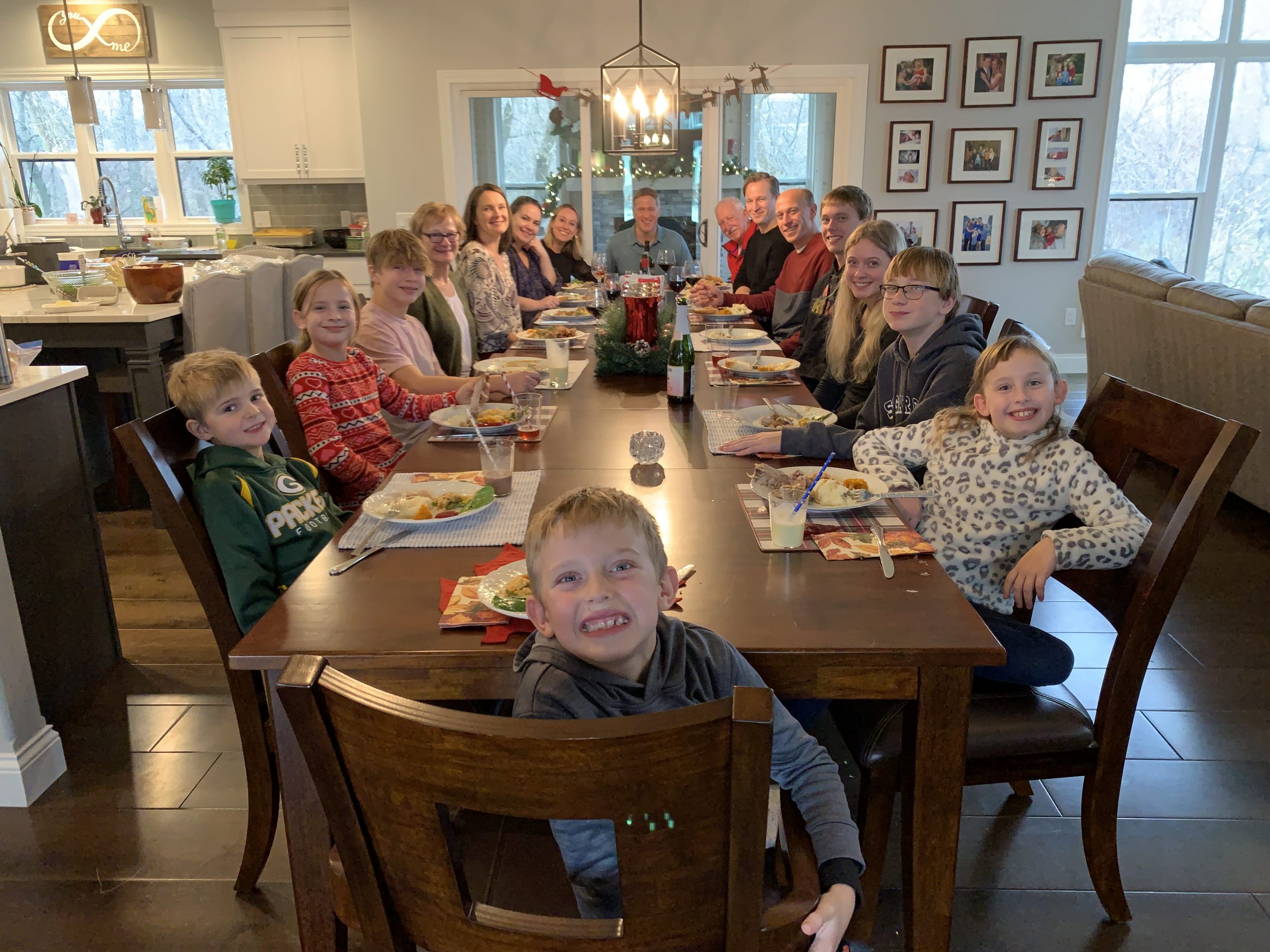The simplest and the greatest joy: time together with loved ones. This blessing was mine on Thanksgiving Day. We had not been together for two years, but there we were: gathered around a single table. Both of my parents were there. Both of my brothers were there, along with their families. Together, we were 16 people ranging in age from 5 to 73.
It was like a little slice of heaven, a foretaste of the feast to come. Our gathering called to mind the vision of the great banquet (Isaiah 25 and Luke 14), where all are welcome and every tear is wiped away.
My brother and his wife hosted this year, and one of the things that I love about being at their place is that they have space to stack tables end-to-end so that we can all gather around a single table, Viking style. No one is left out. Everyone has a place at the table. We said grace multiple times because the youngest children wanted to participate. On Thanksgiving, we went around the table one at a time, sharing something we were thankful for. It was holy time.
I reflect that it was relatively easy for us. We are all related by blood, and we not only love each other but we also get along! Not every family is so fortunate, and not every person has a place at a family table. So many are excluded or made to feel unwelcome.
The table is a place of hospitality and welcome throughout scripture (e.g. Genesis 18, 2 Samuel 9, Luke 19:1-10, 1 Corinthians 11, Hebrews 13:2). The central ritual of Christian worship is gathering around the table for the Lord’s Supper. The Jewish Seder meal recounts the central story of deliverance for God’s people. And yet, our religious communities often seek to exclude people from the table. Jesus preaches an expansive view of God’s love, where all are welcome at the table: “Let the little children come to me” (Matthew 19:14), “Go out into the roads and lanes, and compel people to come in, so that my house may be filled” (Luke 14:23), and “In my Father’s house, there are many dwelling places” (John 14:2).
When families gather at Thanksgiving or other times of the year, it is not always easy to pay attention to details. Sometimes, it is all we can do to make sure everyone is fed and no arguments break out. Certainly, not every family can gather around a single table. The default for many multi-generational family gatherings is to separate children from adults. We reason with ourselves that adults want adult time and adult conversations, kids would rather just hang out with each other, and teenagers just want to sulk together somewhere. This may be true, but it does not necessarily mean it is the right thing to do.
Always consider what we are teaching our children. They are always watching and learning. Also consider the value that children’s presence can add to conversation and family relationships. As we teach them, they also teach us. At our family gathering, they contributed prayers, conversation topics, and abundant joy for all of us. My teenagers are kinder and more attentive to the needs of others when they are around their younger cousins. They are more willing to participate in adult conversations when they are at table with adults other than their parents. The adults are far less likely to argue or say something hurtful while children are present. They remind us the importance of forgiveness, patience, and interpreting each other’s intentions through the best possible light. When they are at table, we teach the children and they remind us: all are welcome.
We divide our society into age-segregated spaces like schools, bars, and nursing homes. We desperately need opportunities for cross-generational interaction, and the most basic space is the multi-generational family gathering. While our society seeks to exclude and excommunicate, we must seek to proclaim that all ages, voices, and abilities are welcome. We sometimes forget that excommunication has a very specific meaning. It means excluding someone from the Lord’s Supper. Excommunication means that there is no longer a place for you at the table. Children can teach us that our standards for admission are human contrivances. Our calling as the people of God is to seek out the stranger, the outcast, and the sinner. Out of our abundance, we not only give to those in need. We also welcome those who have been denied a seat at the table.
We now begin the season of Advent, the time of expectant waiting for the coming reign of God. I am thankful for the foretaste I received this Thanksgiving. It is my prayer that everyone may find welcome at the table. Let’s start in our own homes.










0 Comments